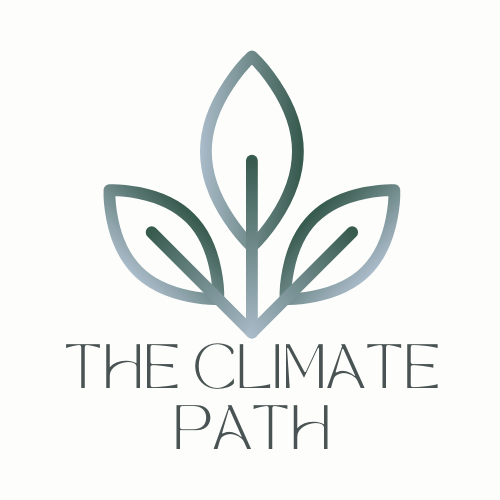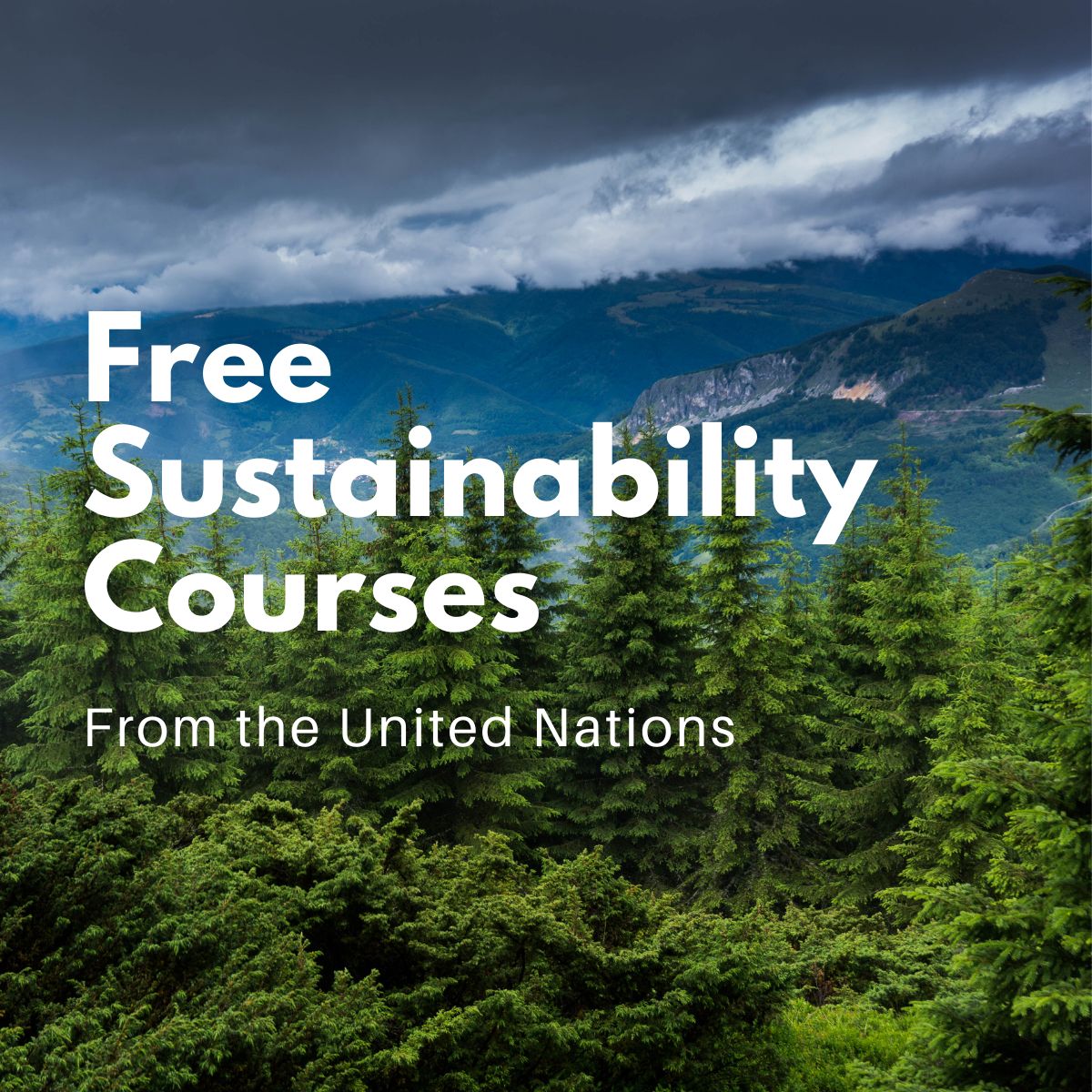1. Net Zero 101: What, Why and How
Link: https://unccelearn.org/course/view.php?id=185&page=overview
Description
Have you ever heard about “net zero”? From governments to companies, net zero has often been mentioned as an important climate goal. But what does this concept really mean?
Understanding net zero requires understanding many climate science terminologies, and this course breaks down the science in easy-to-understand terms. Throughout the course you will be provided with practical tips to contribute to climate action. By the end you will gain a solid foundation in the science behind climate change and net zero.
Info
📝Pace: Self-paced
⏳Time: 1.5 hours
✅ Certificate
🗣️ Language: English
2. Becoming a Climate Champion
Link: https://unccelearn.org/course/view.php?id=201&page=overview
Description
Interactive online course designed to equip you with essential skills for excelling in climate action in five key areas: leadership, project management, resource mobilization, leave no one behind and communications.
You will learn from high-level experts how to apply these skills to your climate and environmental projects, transforming your initiatives into successful, meaningful contributions to a sustainable future. Whether you are an entrepreneur, student, government official or NGO worker, this course empowers you to take your work to the next level and ramp up action against climate change.
Info
📝Pace: Self-paced
⏳Time: 3-3.5 hours
✅ Certificate
🗣️ Language: English
3. Introduction to Sustainable Finance (NEW)
Link: https://unccelearn.org/courses/?language=en&category=4
This interactive and practice-oriented course, originally developed in 2018 and comprehensively updated in 2021, covers the basics of Sustainable Finance while providing several opportunities to dive deeper. The course covers sustainable finance instruments, methodologies and frameworks for integrating sustainability into financial decisions, key global sustainable finance initiatives, and sustainable finance regulations. It is designed for interested participants from governments, academia, the financial sector, businesses, and civil society.
Info
📝Pace: Self-paced
⏳Time: 10 hours
✅ Certificate
🗣️ Language: English
4. Introduction to Sustainable Development in Practice
Link: https://unccelearn.org/course/view.php?id=170&page=overview
Description
This introductory course teaches learners WHAT is an integrated approach to sustainable development and WHY is it needed. The course explains the rationale, drivers, challenges, and opportunities for an integrated approach to tackling poverty-environment issues. The course lays the foundations for an advanced course focused on HOW to apply the integrated approach in practice.
Info
📝Pace: Self-paced
⏳Time: 2 hours
✅ Certificate
🗣️ Language: English
5. Indicators for an inclusive green economy: Advanced course
Link: https://unccelearn.org/course/view.php?id=122&page=overview
Description
The application of indicator methodologies often requires policymakers to make adjustments to their specific national contexts. Countries need to develop tailored and flexible national indicator frameworks that respond to their development priorities and statistical capacities whilst supporting their efforts in monitoring progress towards green economy.
This advanced e-learning experience builds on the concepts and processes described in the Introductory course and focuses particularly on the application of the Green Economy Progress (GEP) Measurement Framework developed by the United Nations Environment Programme (UNEP) under the Partnership for Action on Green Economy (PAGE).
Info
📝Pace: Self-paced
⏳Time: 3 hours
✅ Certificate
🗣️ Language: English
6. Carbon Taxation
Link: https://unccelearn.org/course/view.php?id=87&page=overview
Description
Recent years have seen renewed and growing interest in policy instruments that put a price on greenhouse gas (GHG) emissions through the adoption of carbon taxes. About half of the Nationally Determined Contributions (NDCs) submitted by governments under the Paris Agreement mention carbon pricing as a cost-effective tool to meet climate targets.
Today, carbon taxes cover a broad range of sectors and include novel features, demonstrating their ability to adapt to varying policy goals and national contexts. The versatility of carbon taxes also means that policy makers need a clear picture of the available options and how those options fit with the jurisdiction’s context and objectives. Putting a price on carbon involves a fair amount of analysis and consultation with stakeholders. The overall goal of the course is to familiarize learners with underlying market dynamics, policy design options and relevant terminology.
Info
📝Pace: Self-paced
⏳Time: 12 hours
✅ Certificate
🗣️ Language: English
7. Introduction to Green Economy
Link: https://unccelearn.org/course/view.php?id=51&page=overview
Description
A journey that introduces you to the basic concepts, policy instruments and international frameworks of inclusive green economies. This course introduces you to the basic concepts, policy instruments and international frameworks of inclusive green economies. The path consists of five modules which are divided into smaller sections. You can start with any module depending on your preference.
Info
📝Pace: Self-paced
⏳Time: 10 hours
✅ Certificate
🗣️ Languages: English, Azeri, Spanish, French, Romanian, Ukrainian, Mongolian, Armenian, Georgian.
8. Climate Change: From Learning to Action
Link: https://unccelearn.org/course/view.php?id=48&page=overview
Description
This course provides “everything you need to know” about the basics of climate change. The course features lectures and exclusive interviews from UN experts on key climate change topics. The course is divided into six modules, each taking an average of 2 hours to complete. Each module features videos, lessons and exercises that give you an overview of a different aspect of climate change.
Info
📝Pace: Self-paced
⏳Time: 2 hours
✅ Certificate
🗣️ Languages: English, Spanish, French, Russian, Chinese.
9. Green Economy and Trade
Link: https://unccelearn.org/course/view.php?id=111&page=overview
Description
The transition to an inclusive green economy represents many significant opportunities. By harnessing the increasing global demand for environmental goods and services, as well as consumer demand for more sustainable products, countries can diversify their economies, reduce their commodity dependence and boost their competitiveness.
Info
📝Pace: Self-paced
⏳Time: 8 hours
✅ Certificate
🗣️ Language: English
10. Green Industrial Policy: Promoting Competitiveness and Structural Transformation
Link: https://unccelearn.org/course/view.php?id=94&page=overview
Description
Industrial policy — or strategic government measures that aim to promote new economic sectors and accelerate structural change — has traditionally been employed to enhance productivity, boost competitiveness, and promote economic growth. Today, green industrial policy follows this same approach of state-driven structural change while also promoting broader social and environmental goals.
The course is designed to advance learning on green industrial policy at a high technical level and serves two types of users. First, the course provides individual learners with the knowledge and conceptual tools to grasp and shape the global debate on modernizing the industrial basis of our economies. Secondly, lecturers and instructors are encouraged to use the course materials and apply them within their instructional activities, for example by integrating them into existing curricula and/or programs.
Info
📝Pace: Self-paced
⏳Time: 30 hours
✅ Certificate
🗣️ Language: English, Spanish, French, Khmer.

